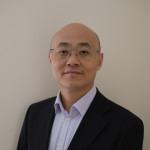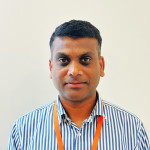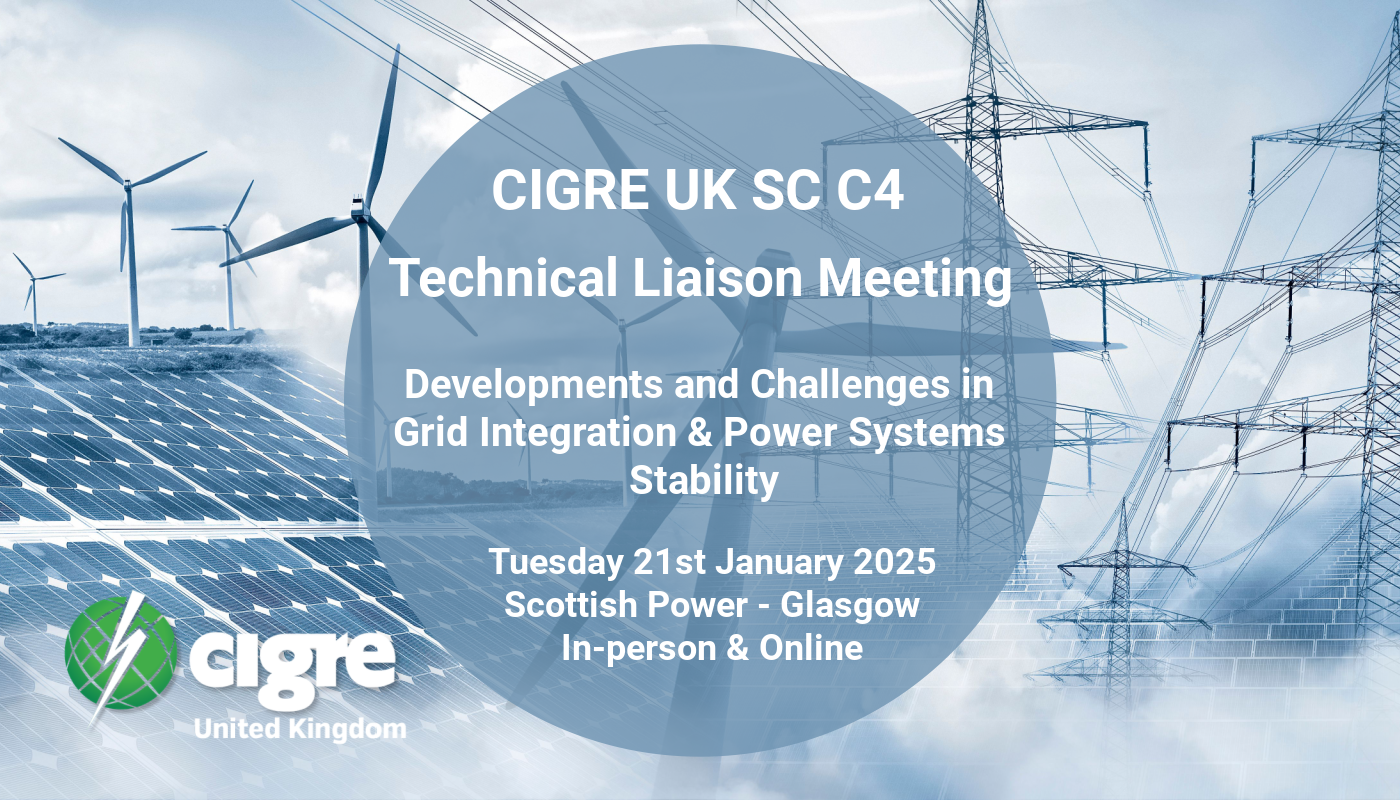
The 2025 CIGRE UK Study Committee C4 Technical Liaison Meeting, focused on “Developments and Challenges in Grid Integration and Power Systems Stability”. This hybrid event took place at the Scottish Power Headquarters in Glasgow, and was kindly coordinated by Sofia Koukoura, Scottish Power Innovation Manager. This CIGRE UK Technical event brought together experts from industry and academia to present issues in ‘Grid Integration and Power Systems Stability’ and discussed advancements in modelling methods and study tools essential for analysing these complex systems. The meeting also provided a high-level overview of the ongoing activities in CIGRE related to SC C4 (Power System Technical Performance) led by UK Regular Member, Spyros Karamitsos. Technical Brochures published in the last year were highlighted, along with a status update on certain active SC C4 Working Groups with UK participation. we also heard about the latest work items approved by the C4 Study Committee during the CIGRE 2024 Paris Session and possible work items that could be proposed in the future. Furthermore, the session unveiled plans for the UK SC C4 for 2024–2026, including the introduction of new members and updates to the Technical Panel structure.
To review or download the presentations click on the presentation title below
A video of the technical presentations can be found at the bottom of this page

Synopsis
This session aims to set the stage for the upcoming discussions on grid integration and power system stability, offering insight into the key activities of CIGRE Study Committee C4, which focuses on power system technical performance, including system stability, grid integration, and advanced modelling techniques. The presentation will highlight recent achievements, including newly published Technical Brochures and updates on active Technical Working Groups with significant UK involvement. It will also cover ongoing work and recent developments within SC C4, such as key outcomes from the 2024 Paris Session, the status of active Working Groups, and a summary of the latest approved work items and potential future proposals. Furthermore, the session will outline plans for the UK SC C4 Technical Panel from 2024 to 2026, including the introduction of new Panel members and an updated structure. This overview will provide valuable context for the subsequent presentations and discussions during the Technical Event, fostering a deeper understanding of the evolving landscape of power systems and the pivotal role of SC C4 in addressing the challenges and opportunities ahead.
Speaker Biography
Dr Spyros Karamitsos (MEng, MSc, PhD) is the Chair and Elected Regular Member of the CIGRE UK Study Committee C4. He is the UK Lead Grid and System Studies Manager at Scottish Power – Iberdrola Renewables, where he oversees the power system studies, electrical design, performance and grid code compliance for the East Anglia Hub Offshore Wind Complex (EAH ~3.1GW). He is also the Innovation Lead of SPR’s Electrical Department and actively contributes to several Technical Working Groups within organisations such as CIGRE, IEEE, IET and the Carbon Trust. With extensive experience in HVDC systems and renewable energy integration technologies, Spyros previously worked as Senior HVDC Engineer for the East Anglia 3 Offshore Windfarm Project, as a Power Systems Consultant at HVDC TECH and as an Industrial-Researcher at the University of Strathclyde focusing on power and converter control systems modelling, studies and analysis. He holds a PhD degree in Electronic and Electrical Engineering from the University of Strathclyde, an M.Sc. from the University of Nottingham, and an M.Eng. from the Aristotle University of Thessaloniki.
10:50 – 11:00
CIGRE UK

James Yu
Speaker Biography
Dr James Yu is a charted engineer and an elected Fellow at IET (Institute of Engineering and Technology) and Royal Society of Edinburgh. He chairs Technical Committee for CIGRE, UK. James joined the UK electricity transmission/distribution industry after he finished his studies from Newcastle upon Tyne. He has taken various technical, commercial and managerial roles in the industry since 2003. James has been the principal investigator for 11 flagship innovation projects at the UK andEU level to facilitate the low carbon transition for the electricity sector with a portfolio over £150m. His focus includes data sharing infrastructure, system stability, power electronics, pushing the innovation into business as usual.
Synopsis
Outline of the stability challenges for Clean Power 2030 and how industry could work together to tackle those challenges.
Speaker Biography
Dr Xiaoyao Zhou is the Operability Policy manager of National Energy System Operator (NESO). He has two decades of transmission system operation, planning and investment experience. His role is to set out operability policy for Great Britain’s electricity network to enable the net zero operation, specify the Grid Code technical requirements for new technologies and define future network needs so that market and network owners can invest in the right solutions at the right time. Dr Xiaoyao Zhou is also an Honorary Professor in University of Birmingham, UK.
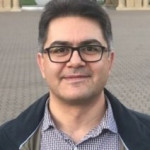
Afshin Pashaei
Synopsis
As modern power systems transition towards greater integration of power electronics, challenges such as subsynchronous oscillations (SSO) become increasingly critical. SSOs, typically characterized by oscillatory interactions between mechanical and electrical systems at frequencies below the fundamental grid frequency, can lead to system instability and equipment damage. This phenomenon becomes particularly pronounced in power systems dominated by high-voltage direct current (HVDC) systems, wind farms, and flexible AC transmission systems (FACTS). This guideline provides a comprehensive framework for conducting SSO studies in power electronics-dominated power systems. It highlights key aspects of modeling, analysis, and mitigation techniques. The document outlines methodologies for accurately capturing system dynamics, including the behaviour of power converters, their control algorithms, and their interactions with the grid. Emphasis is placed on the importance of electromagnetic transient (EMT) simulations and modal analysis for identifying potential resonance frequencies and unstable modes.
Speaker Biography
Dr Afshin Pashaei holds a PhD in Voltage Source Converters (VSC) and is a subject matter expert in VSC HVDC, specialising in developing control algorithm, EMT based dynamic performance and power system studies. Dr Afshin Pashaei is Network Operability Specialist at National Grid UK, where he plays a pivotal role in ensuring the operability of PE dominated power system networks. As an active member of CIGRÉ, Afshin is the convenor of the B4.89 working group and has published numerous technical papers in IEEE, IET, and CIGRÉ. He is also a Fellow of the IET and serves as the industry liaison for the IEEE UK and Ireland Power and Energy Society Chapter.
Networking Lunch

Ben Marshall, Colin Foote, Dong Chen
Speaker Biography
As the HVDC Technical Manager, Ben Marshall oversees the team of Simulation Engineers undertaking detailed HVDC simulation studies in real-time using vendor-supplied replica hardware, to understand multi-infeed, multi-terminal and multi-vendor HVDC operation and interactions, for real schemes in GB; interpreting the results to gain insights to improve the design and operation of HVDC schemes and their associated protection. Ben previously has had a 23 year long and varied career within National Grid with a broad range of experience, particularly with respect to the analysis of the operation and design of the AC and DC transmission systems. He has experience in both offline and realtime EMT simulation and in modelling of convertors across battery, solar wind and HVDC systems, and as deep understanding of dynamic stability of power systems how that relates to device performance.
Speaker Biography
Dr Colin Foote is a Senior Simulation Engineer at the National HVDC Centre where he leads a team performing advanced modelling, analysis, and testing for a range of power system applications. He has extensive and varied experience in consultancy, research, project design and delivery, solutions development, and training. Previous roles include System Analysis manager at SP Energy Networks and Head of Power Systems at Smarter Grid Solutions. He has MEng and PhD degrees from the University of Strathclyde.
Dr Dong Chen is a Senior Simulation Engineer and the lead of academic engagement at the National HVDC Centre. He is currently leading a team to de-risk the 1st multi-vemdor-multi-terminal HVDC grid of UK by building real-time digital model for demonstration, developing control philosophies, proving specification methodologies and have led 3 patents in this area. His technical expertise also extends to control of voltage source converter and power system stability. He is a senior member of IEEE Power and Energy Society and serves as an associate editor for the academic journals of IET Power Electronics and IEEE Transactions on Power Delivery.
Synopsis
In 2023, wind power contributed 29.4% of the UK’s total electricity generation, and a peak of 87.6% of the electricity was generated using carbon-free resources. The transition is not free from challenges, especially regarding stability. The severity of these challenges was illustrated on the 9th of August in 2019, when areas of England suffered a blackout partially due to the incorrect setting of power electronics converters in an offshore wind farm. The presentation will explore some of the recent stability events, the research involved in understanding them better, and the solutions that have been adopted.
Speaker Biography
Dr Agustí Egea-Àlvarez is a Professor at the electronic & electrical engineering department and a member of the PEDEC (Power Electronics, Drives and Energy Conversion) group. Also, he is Network Operational Perfomance Manager in ScottishPower Energy Networks. He obtained his BSc, MSc and PhD from the Technical University of Catalonia in Barcelona in 2008, 2010 and 2014 respectively. In 2015 he was a Marie Curie fellow in the China Electric Power Research Institute (CEPRI). In 2016 he joined Siemens Gamesa as converter control engineer working on grid forming controllers and alternative HVDC schemes for offshore wind farms. He is a member of IEEE, IET and has been involved in several CIGRE working groups.

Panagiotis Papadopoulos
Synopsis
Electrical power systems are undergoing unprecedented changes mainly driven by decarbonisation targets and climate change as well as other technical, economic and social reasons. This leads to the integration of new technologies such as renewable generation, electric vehicles, HVDC links, etc. These devices are mostly connected via power electronics with very different dynamic behaviour, leading to increasing complexity of power system dynamics. In addition, uncertainty is also increasing due to intermittent nature of renewable generation but also because of how society will use energy on the way to decarbonization (e.g. electrification of transport or possibly heating). At the same time, advanced measurement and communication infrastructure is being integrated in modern power systems. Such technologies, especially couple with machine learning, offer opportunities for advanced situational awareness, decision support tools and automated control methods.
Speaker Biography
Dr Panagiotis Papadopoulos is a Reader (Associate Prof.) in the Department of Electrical and Electronic Engineering at the University of Manchester and a UK Research and Innovation Future Leaders Fellow working on “Addressing the complexity of future power system dynamic behaviour”. He received the Dipl. Eng. and Ph.D. degrees from the Department of Electrical and Computer Engineering at Aristotle University of Thessaloniki, in 2007 and 2014, respectively. From 2014-2017, he was a post-doctoral Research Associate at the University of Manchester and in 2017, he joined the University of Strathclyde as a Lecturer. His research interests are in the area of power system stability and dynamics under increased uncertainty, introduced due to the integration of new technologies. He is also interested in power system applications of machine learning to tackle complex problems related to power system stability.
Comfort & Refreshment Break
Synopsis
The transition from a synchronous generation (SG) dominated conventional grid to a composite grid, where inverter-based resources (IBR) may have a higher proportion in the future, has led to the emergence of a phenomena in the system collectively known as sub-synchronous oscillations (SSO). A state-space approach is an effective method for identifying oscillatory modes in a power system and determining their underlying causes. However, a complete understanding of the system is necessary for this approach. This was feasible in traditional systems with synchronous generators and standardised controllers such as governors, exciters and power system stabilizers. In current systems, the presence of IBR sources mean that control algorithms are vendor-specific, considered confidential commercial assets, and rarely disclosed as white-box models. Instead, manufacturers provide black-box models with input-output relationships but without internal details.
Speaker Biography
Dr Diptargha Chakravorty is a Principal Consultant with Siemens Energy, renowned for his expertise in power system stability and controller interaction studies. Prior to his current role, Dr Chakravorty served as the Head of Innovation at TNEI, where he collaborated closely with UK Network companies on numerous innovation projects, providing technical leadership. His contributions extend to the international arena as an active member of several working groups, including the recent CIGRE B4/C4.97.
Synopsis
The aim of CIGRE WG C4-63 “Harmonic power quality standards and compliance verification – a comparative assessment and practical guide” was setup to carry out work to review the many international and national harmonic standards, regulations and practices used by industry to manage the harmonic levels in the network. This work started in 2022 with an industry survey conducted across many participants internationally intended to collate important information on how all responsible parties conduct the different aspects of harmonic work in their jurisdiction. An overall picture of the working group latest progress will be presented in this meeting to cover and not limited to, structure and organization of the different tasks of the working group, structure and rationale of the design of the questionnaire and desired outcomes, approach and methodology to the analysis of the survey etc.
Speaker Biography
Dr. Kah Leong, Koo is currently the Technical Director, Power System Studies with PSC UK. He is a chartered engineer with over 20 years’ experience working in the utility, energy consulting and research and development environment. He has been involved in all areas of power system studies and conducted studies related to power quality and transients in many recent projects. His main interest lies in power systems modelling and studies focusing in areas of power quality, rms transient stability and electromagnetic transients. His interest areas align perfectly with the main technical areas within CIGRE Study Committee C4 for System Technical Performance where he was the representative for the UK from 2016-2020. He has contributed to many CIGRE WGs – C4.112 on Guidelines for Power Quality (PQ) monitoring, C4.24 on PQ and EMC issues for future networks, C4/C6.29 on Power Quality aspects of PVs, C4/B4.38 on Network modelling for harmonic studies, B4.68 on DC harmonics and filtering in HVDC transmissions and currently the UK RM for C4-63.
Synopsis
The aim of this work is to leverage the vast Phasor Measurement Unit (PMU) data that many system operators possess to identify dominant oscillatory modes in the grid under disturbance conditions. A tool capable of ensuring readiness for deployment was sought. This paper examines Principal Component Analysis (PCA) and Singular Value Decomposition (SVD) for dimensionality reduction and analysis of PMU data. PCA simplifies data by transforming correlated variables into uncorrelated principal components, while SVD factorises matrices to reveal mode strength and structure. Python was used as the primary tool to implement these techniques and process the data efficiently. Both techniques are evaluated using a test case from the North American SynchroPhasor Initiative, focusing on ISO New England system-wide oscillations.
Speaker Biography
Dr Carlos Ferrandon is an Electrical Engineering Consultant with 7 years of research experience, and 7 years of industry work experience, from the distribution layer to the transmission system operator. He has experience on power systems operations planning and security analysis of power systems, both deterministic and under a stochastic environment. His research interests are power system optimisation studies, transient stability analysis with emphasis on low-inertia grids, out-ot-step protection studies, and recently the application of machine learning techniques to power systems data analysis. Carlos is a control room operator by training and practice.
Synopsis
To maximise the use of spare active power capability in existing onshore windfarms, many developers are co-locating Battery Energy Storage Systems (BESS) with existing onshore windfarms. This practice allows for a faster deployment of BESS that have become essential to provide fast frequency response services to maintain a stable 50Hz frequency in the transmission system. This presentation details challenges faced during the grid integration of BESS with existing onshore windfarms in Scotland including but not limited to: GB Grid Code compliance, system studies and control systems.
Speaker Biography
Dr Isaac Gutierrez works as a Principal Electrical/Grid Engineer for Grid Integration matters at ScottishPower Renewables in the UK and has over 20 years of experience in the renewable energy sector. His main areas of expertise include ensuring grid code compliance of onshore and offshore windfarms, Battery Energy Storage Systems (BESS); STATic synchronous COMpensator (STATCOM) design review, installation, and site testing. He has been an active member of GB Grid Code working groups in the UK, including those on grid forming and modelling. Most recently his work has focused on enabling a windfarm to operate in grid forming mode and demonstrate the provision of black start services. Dr Isaac Gutierrez received his BSc in Electrical- Mechanical Engineering from the Department of Electrical Engineering at the Technology University of Panama, Panama City, Panama, in 1996. In addition, he received his MSc and PhD degrees from Kanazawa University, Kanazawa, Japan in 2002 and 2005 respectively. Dr Isaac Gutierrez is a member of the Institution of Engineering and Technology (IET) in the UK and IE
Synopsis
Temporary Overvoltages (TOV) as defined by IEC 60071 as a power frequency overvoltage of relatively long duration overvoltages and affects the withstand characteristics of the electrical equipment. The equipment standard testing involves the application of short duration power frequency and do not take into consideration other harmonic frequencies. The withstand levels of equipment however depends on the duration and frequency of the overvoltage and this work focuses on the impact of insulation due to low order harmonic resonances. Different methods for the assessment of the TOV, assessment methodology and their impact on the insulation of transformers, shunt reactors and surge arresters will be presented and discussed.
Speaker Biography
Kiran Munji received his Diploma and Bachelors degree in Electrical Engineering in 2000. He recieved his Masters degree in Power Systems from Mumbai University in 2008. He has nearly two decades of experience in the field of Power System Analysis and Electrostatic analysis of High voltage equipment. He is currently working as a Grid Services Manager with Scottish Power Renewables.
Q&A - Closing Session - AOB
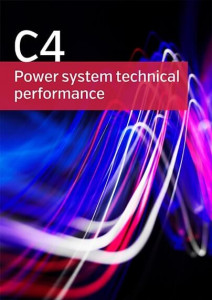
C4 Study Committee Mission, Technology & Scope
The mission of Study Committee C4 is to facilitate and promote the progress of engineering and the international exchange of information and knowledge in the field of System Technical Performance. To add value to this information and knowledge by means of synthesising state-of-the-art practices and developing recommendations.
Within its technical field of activity, Study Committee C4 deals with methods and tools for analysis related to power systems, with particular reference to dynamic and transient conditions and the interaction between the power system and its apparatus/subsystems (including external causes of stress and other installations). Specific issues related to the design and manufacturing of components and apparatus are not in the scopes of SC C4, as well as those specifically related to planning, operation and control, apart from those cases in which a component, apparatus, or subsystem behaviour depends on, or significantly interacts with, the performance of the nearby power system.
Within this framework, specific areas of attention include:
- Power Quality Performance:Continuity of end-to-end electric power supply and voltage waveform quality (magnitude, frequency, symmetry). Analysis covers emission assessments from disturbing installations, measurement and simulation methods, identification of quality indices, monitoring techniques, immunity of sensitive installations, and mitigation techniques taking into account a co-ordinated approach across all voltage levels.
- Electromagnetic Compatibility (EMC):High-frequency disturbances on the end-to-end electricity supply and all disturbances (HF or LF) reaching equipment other than through the electricity supply. Studies include measurement and simulation methods. Health effects related to low frequency EMF are however excluded.
- Power System Dynamics:Development of advanced tools and new analytical techniques for assessment of power system dynamic/transient performance, security, design of controls and modelling of existing and new equipment, real-time stability evaluation and control.
- Lightning:Analysis of lightning characteristics and interactions of lightning with electric power systems and equipment, including protection in MV and LV networks against lightning, and their standardisation.
- Insulation Co-ordination:Methods and tools for insulation co-ordination and electro-magnetic transient analysis in electric power systems and equipment, contributing to optimisation of their cost and reliability.


